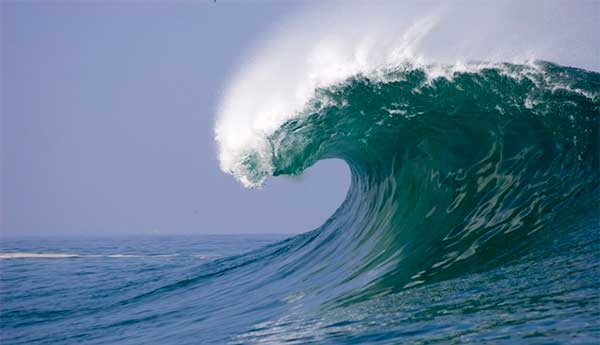Adeola Michael Dahunsi, an ocean scientist, emphasized Nigeria’s untapped potential in leveraging its water bodies for power generation and coastal protection.
During a Wednesday webinar titled ‘Understanding the Blue Economy in the Nigerian Context,’ Dahunsi highlighted that ocean waves can be converted into power through a wave energy converter system.
He noted that this approach not only generates energy but also reduces coastal erosion.
“The ocean is a constant presence, although its strength varies seasonally.
A major issue in the Gulf of Guinea is coastal erosion,” Dahunsi explained.
He urged the government to harness wave energy, pointing out that waves hitting unprotected coastlines often necessitate the construction of barriers, which can mar natural beaches.
“Installing wave energy converters would prevent coastal erosion by transforming wave energy into power,” he added.
Dahunsi, with expertise in ocean observation and modelling, also stressed the importance of sustainable ocean resource use for economic growth.
He advocated for a balance that allows for resource extraction without depleting future potential.
“Sustainable use means extracting value in ways that benefit future generations without leaving them with negative consequences,” Dahunsi said.
“Investment in the blue economy is essential before it can become profitable.
“He identified coastal and marine tourism, maritime transport, marine biotechnology, and seabed mining (for resources like gold and diamonds) as key sectors within the blue economy that Nigeria could develop for revenue generation.
Dahunsi also suggested that Lagos, with its extensive coastline, should significantly expand water transportation to reduce its carbon footprint.
“The blue economy offers immense growth and sustainability potential for Nigeria.
Addressing its challenges requires coordinated governance and policy frameworks,” he stated.
“The Ministry of Marine and Blue Economy is crucial in unlocking this potential.
Collective efforts are essential to foster a sustainable and prosperous blue economy.
“The webinar, part of the Blue Economy Youth Advocacy (BEYA) project, was organized by Nudge Initiative to build capacity among Nigerian youths.
TheCable




